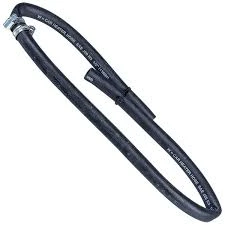Flexible Oil Hose Solutions for Efficient Fluid Transfer and Enhanced Performance
Nov . 08, 2024 01:58 Back to list
Flexible Oil Hose Solutions for Efficient Fluid Transfer and Enhanced Performance
The Importance of Flexible Oil Lines in Modern Applications
In today's rapidly advancing industrial landscape, the significance of flexible oil lines cannot be overstated. From automotive industries to large-scale manufacturing plants, these vital components facilitate the efficient transfer of oil in various systems. This article explores what flexible oil lines are, their benefits, and their applications across different industries.
What are Flexible Oil Lines?
Flexible oil lines are specialized hoses designed to convey oil and other fluids in machinery and equipment. These lines are constructed from a combination of materials such as rubber, PVC, and reinforced synthetic blends, enabling them to withstand high pressures and temperatures. Unlike rigid pipes, flexible oil lines can bend and twist, making them ideal for applications where space is limited or where movement occurs.
Advantages of Flexible Oil Lines
1. Versatility One of the primary advantages of flexible oil lines is their versatility. They can be used in a wide range of applications, from automotive engines and hydraulic systems to lubricating machinery and fuel delivery. The ability to customize lengths and diameters ensures that these lines can meet the specific requirements of different equipment.
2. Ease of Installation The installation process for flexible oil lines is typically straightforward. Their lightweight nature and bendable form allow for easier routing and placement, reducing labor costs and installation time. This is particularly useful in tight spaces where traditional rigid pipes may not fit or where complex connections are required.
3. Resistance to Environmental Factors Flexible oil lines are often designed to withstand various environmental conditions. They are resistant to oil, chemicals, and extreme temperatures, which helps minimize wear and tear over time. This resistance ensures that these lines maintain their integrity and performance even in demanding conditions, reducing the likelihood of leaks and failures.
4. Cost-Effectiveness Using flexible oil lines can be more cost-effective than rigid piping systems. The reduced need for fittings and connectors, coupled with their lightweight design, contributes to lower material and installation costs. Additionally, the durability of flexible oil lines can lead to fewer replacements and lower maintenance expenses over their lifespan.
flexible oil line

Applications in Various Industries
Flexible oil lines find applications in multiple sectors
- Automotive In the automotive industry, flexible oil lines are used extensively for everything from fuel delivery systems to hydraulic brakes. Their ability to absorb vibrations while delivering consistent flow is critical for maintaining vehicle performance and safety.
- Marine The marine sector relies heavily on flexible oil lines due to the challenging conditions at sea. These lines are used in fuel transfer, lubrication systems, and cooling systems, ensuring that vessels operate efficiently and reliably.
- Industrial Manufacturing In manufacturing settings, flexible oil lines play a crucial role in machine operation. They are utilized in hydraulic systems, where they facilitate the movement of fluids that power machinery and tools, contributing to production efficiency.
- Aerospace The aerospace industry employs flexible oil lines in aircraft for various systems, including fuel delivery and lubrication. Given the high-stakes environment of aviation, the reliability and performance of these lines are paramount.
Conclusion
In conclusion, flexible oil lines are a vital component in modern mechanical systems. Their versatility, ease of installation, resistance to environmental factors, and cost-effectiveness make them the preferred choice for many applications across various industries. As technology continues to evolve, the demand for reliable fluid transfer solutions will only grow, underscoring the critical role that flexible oil lines play in ensuring operational efficiency and safety. Whether in cars, ships, or industrial machines, these flexible conduits of oil are essential for powering the systems that keep our world moving.
